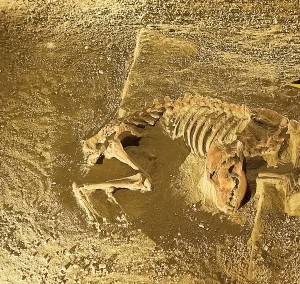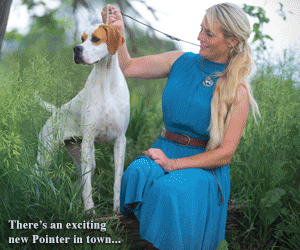European Colonists Kept Indigenous Native American Dogs
 Using DNA from dog jaws excavated from the Jamestown site of the first permanent English settlement in Virginia, archaeologists from the University of Iowa found that contrary to their expectation of European dogs, the bones were from indigenous Native American dogs. Butcher marks indicated some of these dogs were eaten, likely during “the starving time,” the winter of 1609 to 1610, when all but 60 of the 350 people there starved to death. The survivors ate anything: horses, rats, dogs, cats and even human remains. However, this was not the norm when it came to dogs or other normally taboo foods.
Using DNA from dog jaws excavated from the Jamestown site of the first permanent English settlement in Virginia, archaeologists from the University of Iowa found that contrary to their expectation of European dogs, the bones were from indigenous Native American dogs. Butcher marks indicated some of these dogs were eaten, likely during “the starving time,” the winter of 1609 to 1610, when all but 60 of the 350 people there starved to death. The survivors ate anything: horses, rats, dogs, cats and even human remains. However, this was not the norm when it came to dogs or other normally taboo foods.
Early European colonists were known to bring with them Greyhounds, Mastiffs and likely Bloodhounds, but the recovered bones were not from European breeds. Researchers say there is proof, however, that the colonists passed a white Greyhound, a gift from King James I, to Powhatan, Chief of the Native Virginians.
These Jamestown dogs were likely coyote-sized village dogs that native people used to hunt birds or deer by scent tracking. It’s unknown whether they were gifted to the colonists, or simply traveled there with Native Americans and stayed. Researchers are keen to know why indigenous North and South American dogs experienced a huge decline in numbers some time after the first Europeans arrived in North America. They plan to sequence more Jamestown dogs, including some that seem likely to be of European descent based on their morphology, and plan to sequence bones from later settlements such as Williamsburg and neighboring plantations.
Short URL: https://caninechronicle.com/?p=258877
Comments are closed












